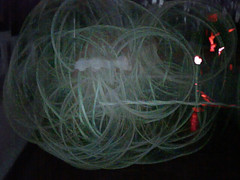La selva oscura de palabras
I was looking up words today- as I do most days – and it occurred to me to look up just how many word there are in the English Language . . . I found a rather satisfactory answer from the Oxford English Dictionary:
“There is no single sensible answer to this question. It’s impossible to count the number of words in a language, because it’s so hard to decide what actually counts as a word. Is dog one word, or two (a noun meaning ‘a kind of animal’, and a verb meaning ‘to follow persistently’)? If we count it as two, then do we count inflections separately too (e.g. dogs = plural noun, dogs = present tense of the verb). Is dog-tired a word, or just two other words joined together? Is hot dog really two words, since it might also be written as hot-dog or even hotdog?
It’s also difficult to decide what counts as ‘English’. What about medical and scientific terms? Latin words used in law, French words used in cooking, German words used in academic writing, Japanese words used in martial arts? Do you count Scots dialect? Teenage slang? Abbreviations?
The Second Edition of the 20-volume Oxford English Dictionary contains full entries for 171,476 words in current use, and 47,156 obsolete words. To this may be added around 9,500 derivative words included as subentries. Over half of these words are nouns, about a quarter adjectives, and about a seventh verbs; the rest is made up of exclamations, conjunctions, prepositions, suffixes, etc. And these figures don’t take account of entries with senses for different word classes (such as noun and adjective). ”
I find it beautiful that language proves to be complex, growing, and shifting. Old words sometimes take on new life whilst others fade out. It’s interesting to observe how people actively shape it (whether they are aware of it or not), and the array of words encountered when traveling. What I have encountered time and time again are clever portmanteaus, agglutination, neologism, ect., both by native and non-native English speakers.
Words and language (all languages) are my/your/our play things, our shared cultural heritage. The more we know and understand them and their respective histories, the better we can utilize them in every day life :)
repositories, put together well after the languages they
define. The roots of language are irrational and of a
magical nature.’-Jorge Luis Borges, Prologue to “El otro, el mismo.”
Further Reading
“How Many Words Are There in the English Language?” Oxford Dictionaries. Oxford University Press. Web. <http://www.oxforddictionaries.com/page/93>.
Wikipedia contributors. “Word formation.” Wikipedia, The Free Encyclopedia. Wikipedia, The Free Encyclopedia, 10 Nov. 2010. Web. 6 Dec. 2010.
Wikipedia contributors. “English language.” Wikipedia, The Free Encyclopedia. Wikipedia, The Free Encyclopedia, 1 Dec. 2010. Web. 6 Dec. 2010.









